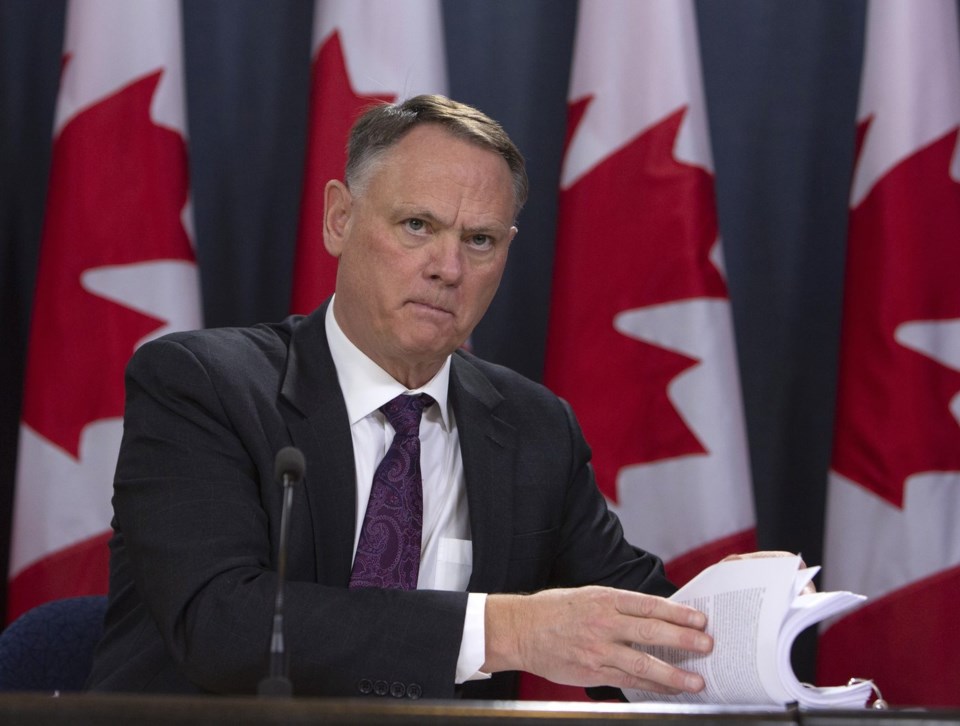OTTAWA — Soon after they were elected, some Canadian members of Parliament began "wittingly assisting" foreign state actors, says a report released Monday — including sending confidential information to Indian officials.
The report from a committee of MPs and senators with top security clearance says Canadian spy agencies produced a body of intelligence showing foreign actors cultivated relationships with both MPs and senators.
Liberal MP David McGuinty, who chairs the National Security and Intelligence Committee of Parliamentarians, said foreign interference is a pervasive national security threat.
It's undermining Canadians' rights and the credibility of democratic processes, he said in an interview Monday.
"We found foreign interference at every order of government, in every political party, in the public sector, the media, the NGO sector, the private sector," he said. "It's there, and it's not stopping."
The committee was asked to assess foreign interference in federal electoral processes, including meddling attempts in the last two elections.
It found Canada's overall response to meddling attempts has been inadequate, and "troubling intelligence" suggests some parliamentarians participated in efforts by other countries to interfere in Canadian politics.
The report cites what it says is a particularly concerning case of an unnamed MP who maintained a relationship with a foreign intelligence officer.
It says the "then-member of Parliament" sought to arrange a meeting with a senior intelligence official in another country and "proactively" gave the intelligence officer information that was provided in confidence.
Overall, the committee concluded the government still hasn't implemented an effective response to the problem of foreign interference, even though it has done the necessary policy work and gathered the intelligence it needs.
It found that foreign countries "conduct sophisticated and pervasive foreign interference specifically targeting Canada's democratic processes and institutions, occurring before, during and after elections and in all orders of government."
China and India are the "most active perpetrators," the report says.
"These activities continue to pose a significant threat to national security, and to the overall integrity of Canada’s democracy."
The committee provided federal ministers with the report in March. They were then required to table a declassified version within 30 sitting days.
Democratic Institutions Minister Dominic LeBlanc said in a statement that the government disagrees with aspects of the report, including how pieces of intelligence were interpreted.
Asked about the allegation that an MP sought a meeting with a foreign intelligence officer, LeBlanc told reporters that "certain information doesn't have the caveats that some of the intelligence documents that we would see have."
LeBlanc said he wouldn't speak about specific elements of the report that involve individuals. He also declined to answer when asked whether the MPs in the report who are accused of helping other states are still sitting in Parliament.
The report cited "particularly concerning examples of behaviour by a few parliamentarians," some of which it said may be illegal.
"Regardless, all the behaviours are deeply unethical and, the committee would submit, contrary to the oaths and affirmations parliamentarians take to conduct themselves in the best interest of Canada."
It cited examples of parliamentarians accepting benefits from other countries "knowingly or through willful blindness," and responding to direction from foreign officials to "improperly influence parliamentary colleagues or parliamentary business to the advantage of a foreign state."
The report takes aim at Prime Minister Justin Trudeau for not approving, as recommended, a better briefing strategy that would include all parliamentarians.
It said that initiative would have been simple to implement, and the committee "considers the prime minister’s lack of action on this recommendation to be a serious omission."
McGuinty said the government was too slow to act, to engage with stakeholders and to put legislation forward.
But he said the government’s proposed foreign interference legislation, Bill C-70, will address a number of the issues the committee has raised, including creating a foreign agent registry.
"We are hopeful these measures will get through quickly," he said.
This report by The Canadian Press was first published June 3, 2024.
Anja Karadeglija, The Canadian Press




